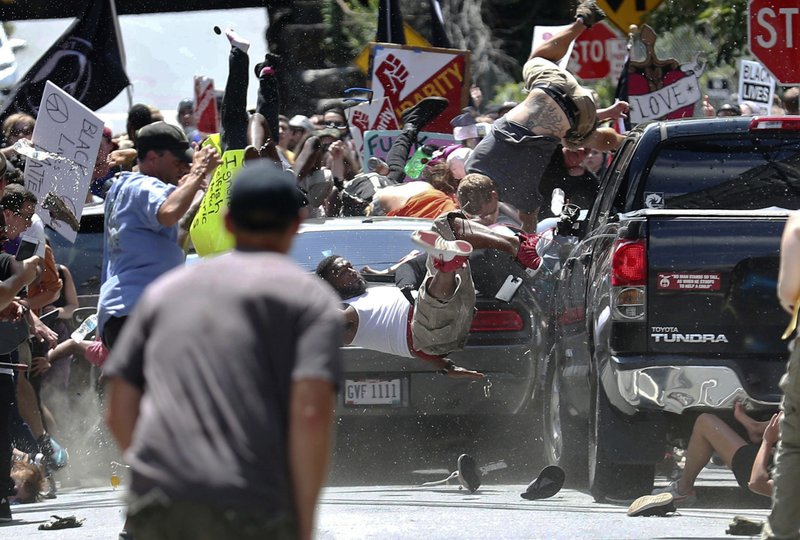RICHMOND, Va. -- The planned "Unite the Right" rally by white nationalists in Charlottesville exploded in chaos: violent brawling in the streets, racially insensitive chants, smoke bombs and, finally, a car speeding into a crowd of counterprotesters, killing one and injuring dozens more.
Afterward, President Donald Trump enflamed racial tensions when he said that "both sides" were to blame, a comment some saw as a refusal to condemn racism.
Fifteen months later, as the man accused of driving the car heads to trial on murder charges, the wounds are still raw.
"Hopefully, this will signal a chance for healing, although I am not entirely optimistic about that because the entire culture in which we live is so steeped these days in white supremacy and white nationalism that violence is becoming less an exception to the practice of American democracy and more like a brutal showing of it," said Lisa Woolfork, a University of Virginia professor who was in a crowd of counterprotesters when the car struck on Aug. 12, 2017.
Heather Heyer, 32, a paralegal and civil-rights activist marching about 100 feet away from Woolfork, was killed.
The Unite the Right rally was organized in part to protest the planned removal of a statue of Confederate Gen. Robert E. Lee. Hundreds of Ku Klux Klan members, neo-Nazis and other white nationalists streamed into the college town for one of the largest gatherings of white supremacists in a decade.
James Alex Fields Jr., a 21-year-old Ohio man who was described by a former teacher as being fascinated with Nazism and idolizing Adolf Hitler, heads to trial Monday in Charlottesville Circuit Court. His attorneys declined to comment and have provided no hint of what his defense will be.
Pretrial hearings have offered few insights into Fields. A Charlottesville police detective testified that as the suspect was being detained after the car crash, Fields said he was sorry and sobbed when he was told a woman had been killed. Fields later told a judge that he is being treated for bipolar disorder, anxiety, depression and ADHD. Fields also faces a separate trial on federal hate-crime charges.
Star Peterson, whose right leg was virtually crushed by the car, has had five surgeries and still uses a wheelchair and cane. She has been unable to return to work and has received help paying her rent and other bills from Heal Charlottesville, a fund set up to help the injured.
Peterson said she's been told by prosecutors that she'll be called as a witness at Fields' trial.
"I feel like it's something I can do for Heather," she said. "I'll be testifying on her behalf."
White nationalist Richard Spencer, who coined the term "alt-right," said he has never had contact with Fields and does not plan to attend his trial. He said he hopes the trial does not paint all members of the movement as violent.
Heyer's mother, Susan Bro, said she is doubtful the trial will bring her any sense of closure.
"I'm not obsessed with him," she said of Fields. "I feel like I've turned him over to the justice system. He's their problem, not mine."
A Section on 11/25/2018

